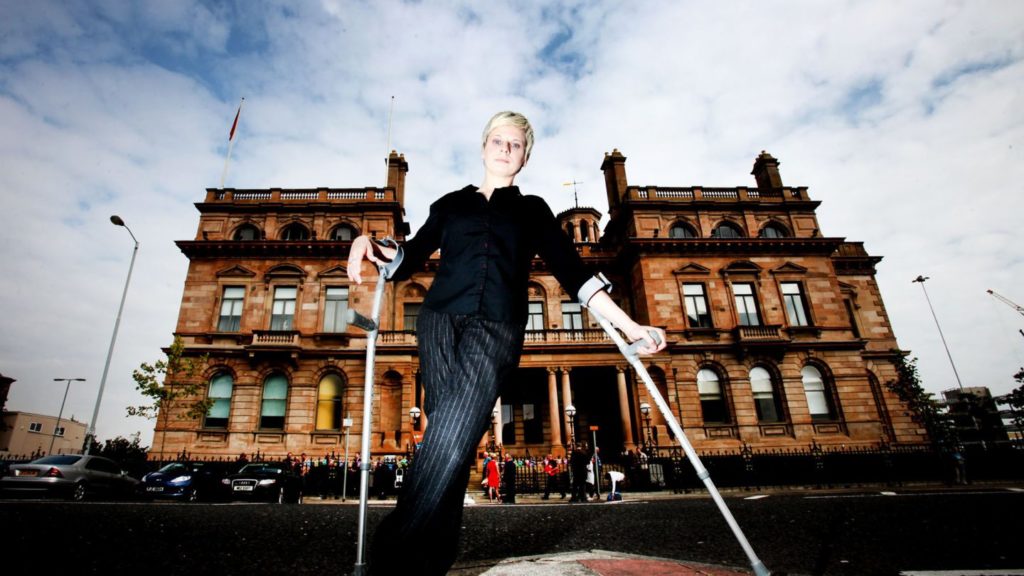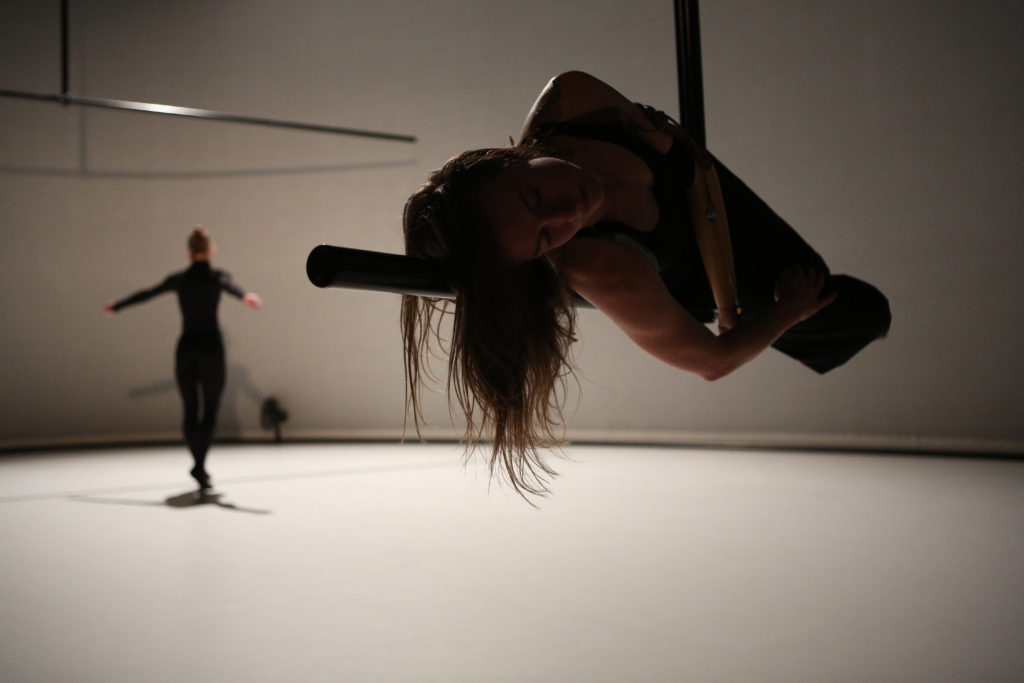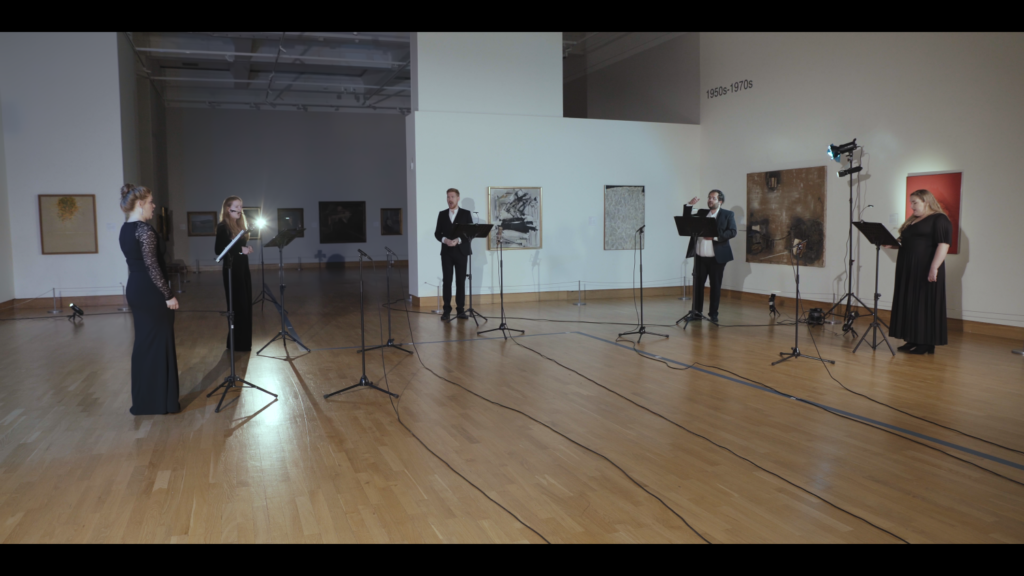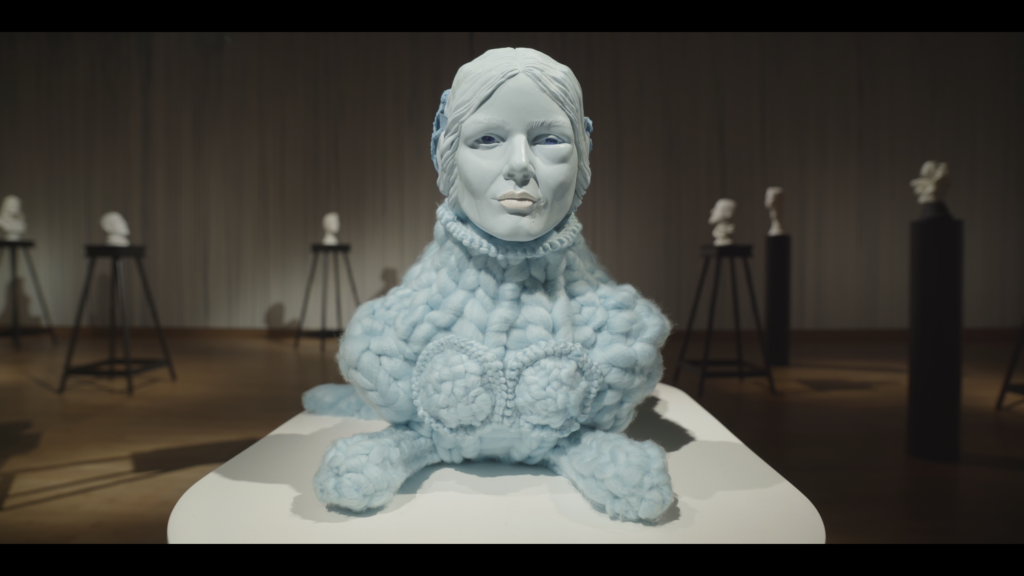Belfast International Arts Festival is a cross-arts annual festival which takes place in October, usually spread across multiple venues throughout the city. The coronavirus pandemic has forced the festival online for its 2020 iteration. Joe Turnbull speaks to members of the team about how they tackled digital access for the first time, as an organisation which usually relies on partner venues to provide accessibility.

Belfast International Arts Festival (BIAF) was originally established in 1962 hosted by Queens University until 2015, when it became an independent organisation with a new artistic vision centred on global connections, access and participation, community and collaboration. In 2019, the festival attracted over 47,000 visitors to 123 events across 32 venues and locations across Belfast. Regular festival venues include the city’s largest in The Lyric, The MAC and the Grand Opera House.
BIAF has a history of working with disabled artists and organisations. Notably, it has a longstanding partnership with the University of Atypical, which is one of Northern Ireland’s most prominent disabled-led arts organisations, which hosts the annual Bounce disability arts festival. A particular turning point for the organisation was hosting disabled performer and choreographer Claire Cunningham as the festival’s Artist in Residence in 2014. During which time, Cunningham developed her seminal work, Guide Gods which was a co-commission between Belfast Festival, Glasgow 2014 Cultural Programme and Southbank Centre, London.
Richard Wakely Festival Director, sees this as fitting in with the overall ethos of the festival:
“As part of our continuing evolution towards creating a genuinely civic and inclusive event of international appeal and significance, we are committed to regularly featuring artists who self-identify as disabled. We want to celebrate and share with our audiences the spectrum of creative self-expression by emerging and professional artists from home and abroad and who self-identify as Deaf, having a disability or living with mental health barriers.”

In terms of audience access, the festival has always strived to work with venues which have accessible buildings and many elements of the programme would ordinarily have a captioned, audio-described or sign-language interpreted performance in its run. In the past, this access for audience would be largely dependent on the venue, and/or the company performing. But just like with everything, 2020 was a very different matter.
The decision to go ahead with the festival in a digital format wasn’t made until May/June which meant a very tight turn around and lots of decisions having to be made very quickly.
“It was so fast moving and ever changing,” recalls Sarah Kelly, BIAF’s Marketing Manager. “It wasn’t even possible to consult with my colleagues in our partner venues because a lot of them were on furlough. So, when it came to us moving the programme online, there was a knowledge gap, because we couldn’t ask venues who regularly deliver access and outreach work with certain groups.”
BIAF’s programming decisions had to reflect the new reality and what would work in an online setting. “We didn’t have the same number of theatre and dance or music performances. And we had an extended Talks and Ideas programme,” Kelly explains. The theatre pieces that did go ahead incorporated audience interaction elements rather than simple to-camera pieces. “We were really proud of our theatre programme this year, because the three productions were live, had interactive elements, and used technology in a creative way. So they were a really interesting experience for audiences”. Similarly, the dance pieces incorporated films which had a documentary element, rather than straight performances.

Short of the expertise and provision for access that would ordinarily have come from venue partners, BIAF had to think creatively about how to shape their access offer. They approached Angel Eyes, a charity based in Belfast that supports and advocates for blind and visually impaired children. Sara McCracken, its Founder Chief Executive was keen to stress anything that could be done by arts organisations to improve access to online material would be welcome. Collette Mackin, the Development Manager of BIAF then had to find a way to fund it. She managed to secure a small grant from the Halifax Foundation, based off their initial research.
Their budget was small, so that meant they had to make targeted decisions about what events would have the biggest impact and work the most seamlessly for access. And it wasn’t just money-based decisions, as Mackin explains: “We had to be practical about how fast we could turn it around, because we were also learning on the job how to deliver an online festival. It was a completely different way of working for us.”
As the Talks and Ideas programme was pre-recorded they opted to concentrate the provision of captioning to this strand of the programme, as the events could be professionally and accurately captioned before broadcast.
“When we looked at what would be suitable for audio description, we decided on the two part Madrigals at the Museum by Sestina Music,” explains Kelly. “It had gorgeous 5-part a capella singing, and it was performed from within the Ulster Museum, set against the backdrop of an exhibition by Ursula Burke, an Irish visual artist. We thought there could be something really interesting in that to audio-describe.”

The audio-description for that event was delivered by Voicebox, a UK-based company who provide captions, voiceover and audio description services, usually to film and television clients.
The final piece of access provision that really stands out is Cahoots NI’s The University of Wonder and Imagination. It was an interactive family theatre show where the audience would make decisions which would guide the action. Cahoots NI produced a downloadable pack which included narrative details and guidance for parents with visually impaired children.
In the broader sense of access, BIAF made the vast majority of its programme free (but ticketed), and instead encouraged donations. “It also meant our audience reach was truly international,” explains Kelly “because all you need is an internet connection. There was a family that tuned in from Romania, because friends of theirs from Egypt recommended the University of Wonder and Imagination. Some of the talks events attracted a lot more people than they would if they had been taking place in a venue.”
That wasn’t the only positive from shifting the programme online. “It actually brought about a new partnership with a festival in Westport, in the Republic of Ireland,” says Kelly. “We shared a weekend of our Talks and Ideas programme with them. But I don’t think online will ever replace live performance or that feeling of gathering in a space together”.
Nevertheless, there was plenty of “learning on your feet” which can be taken forward for future festivals, whether they take place online, in venues, or more likely a mixture of both. “The logistical aspect shouldn’t be taken for granted,” suggests Kelly. “You don’t realise until you come to do it how long it takes to transfer large files when broadcasting work online.”
“In terms of access we were only able to offer it for a fraction of the programme,” Kelly surmises. “But we’ve tried new things out and we see it as something that we want to grow and improve. We’re always open to getting better and finding out about best practice, talking to people and engaging with them. I think that openness is important. By no means are we saying we did a great job this year. It’s just a step in the right direction.”
The audio described performances of Madrigals at the Museum have been made available until 8 January.
A proportion of BIAF’s remaining programme (including the captioned events) is available here.

